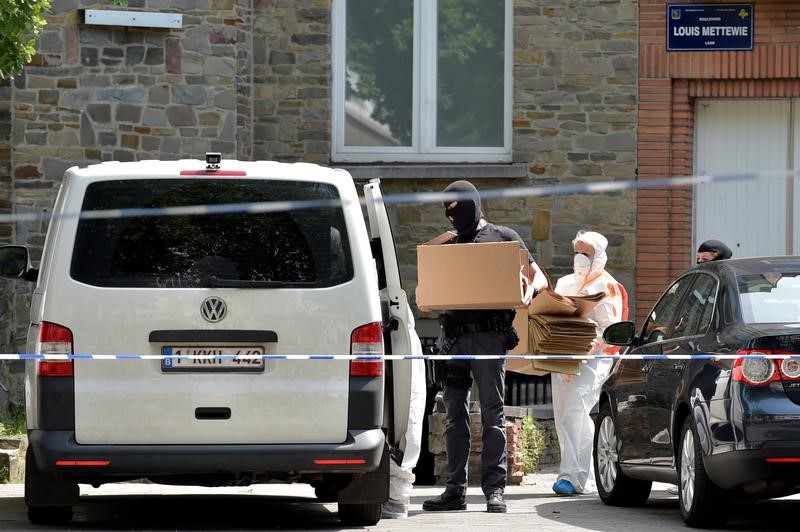
By Hyonhee Shin
SEOUL (Reuters) – The North Korean soldier critically wounded when making a dash to the south last month may have cheated death, but even as his health improves, he is months if not years away from finding a normal life in South Korea, officials and other defectors say.
The transition to life in the democratic and prosperous South can be difficult for any defector from the isolated and impoverished North, let alone for a soldier from an elite border unit with potentially actionable military intelligence and a high profile that may complicate efforts to blend in.
The 24-year-old soldier, identified only by his surname Oh, has been released from intensive care after being shot five times during his daring defection, but is still battling a hepatitis B infection which could delay his transfer to a military hospital for some time, doctors said.
“As active duty soldier defectors have up-to-date information, the intelligence agencies would question the soldiers and see if anything needs to be addressed in our military’s operation and combat plans,” a current South Korean government official involved in resettling North Korean refugees told Reuters.
Oh will likely be under the protection of South Korea’s spy agency, the National Intelligence Service (NIS), and then be offered work such as code cracking in the military or related agencies, a former senior South Korean government official said.
“The decision would be made after a comprehensive assessment on what he means to national security, the level of information he has, and whether he would be capable of mingling with other defectors at the resettlement center,” the former official said.
A SPECIAL CASE
Defections by active-duty soldiers are extremely rare, once a year or less. Intelligence agencies are keen to question Oh, who was stationed in the Joint Security Area near the heavily fortified border, according to South Korean lawmakers briefed by the NIS.
Doctors have asked that officials wait until Oh is fully recovered both physically and emotionally before they begin questioning.
Given his high-profile escape and status as a member from an elite border unit, Oh will likely be given more personalized assistance, away from other North Korean defectors at the Hanawon resettlement center, the former South Korean official said.
Most defectors undergo security questioning by the National Intelligence Service for a few days up to several months in extreme cases, before being moved to the Hanawon resettlement center.
There they receive mandatory three-month education on life in the capitalist South, from taking public transportation to opening a bank account to creating an email address.
“It’s where you would get to see the outside world for the first time, as they take you out to meet people on the streets and learn how to access the social service network. These days, you can also do a homestay with an ordinary South Korean family,” said Ji Seong-ho, a 35-year-old defector who heads Now, Action and Unity for Human Rights (NAUH), a group that rescues and resettles North Korean refugees.
‘LIKE A BABY’
Such training can be more useful for some people than others, said Kim Jin-soo, a 29-year-old former member of the North Korean secret police who defected to the South in 2011.
“Looking back, it would’ve been really useful if they taught more realistic things even though it might discourage people, like how to prepare for a job fair and find a suitable workplace and why it’s important to lose the North Korean accent,” he said.
“Fresh off Hanawon, you’re like a one-year-old baby. But those are the things that would pose a real obstacle when you actually go out there on your own,” said Kim, who now works at a advertising firm in Seoul.
After leaving Hanawon, central and local governments provide defectors 7 million won ($6,450) in cash over a year – barely a fifth of South Korea’s annual average income – as well as support in housing, education and job training. Police officers are assigned to each of the defectors to ensure their security.
Oh may have potential value to the South Korean government or organizations that try to highlight conditions in North Korea, but it will be up to him whether he wants to live a life in the limelight, said Sokeel Park, country director for Liberty in North Korea, which helps North Korean refugees.
“If he has any mind to get involved in that kind of stuff then there will be all kinds of media or non-governmental organizations who would fall over themselves to give him that platform,” said Park.
“But if he makes a good recovery and he chooses to blend it, then he’s just another young guy with a vague back story.”
GRAPHIC: Defector braves hail of bullets http://reut.rs/2zAUDRN
(Writing and additional reporting by Josh Smith; Editing by Lincoln Feast)






